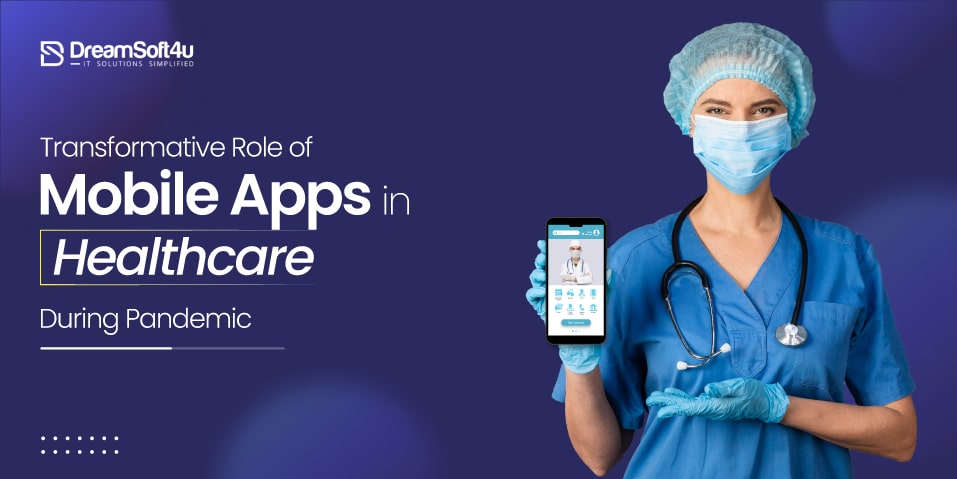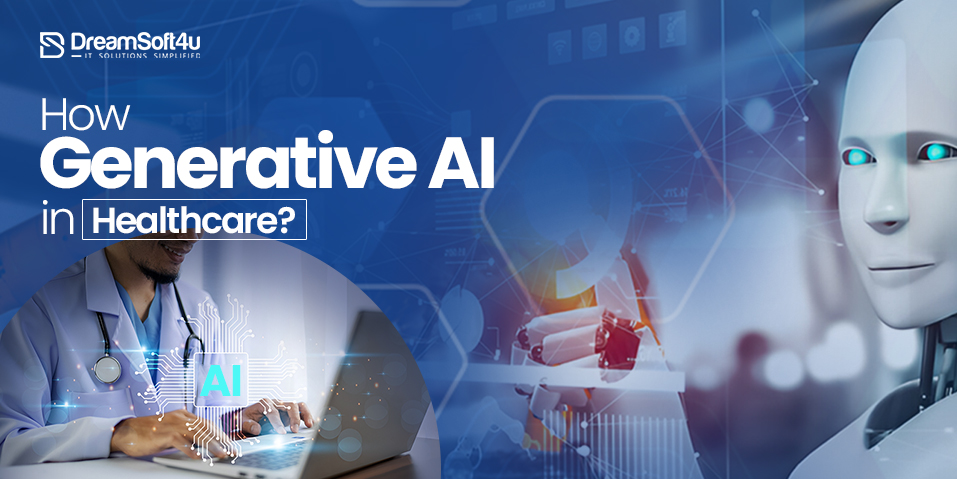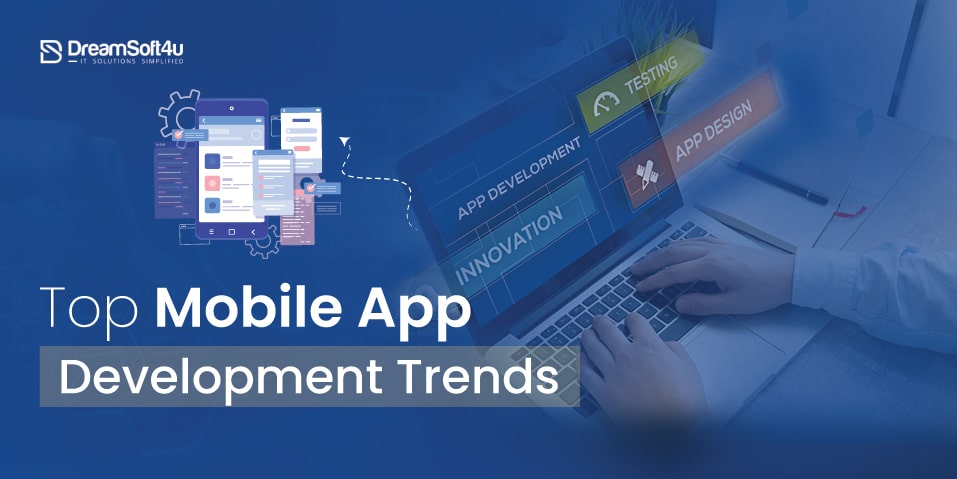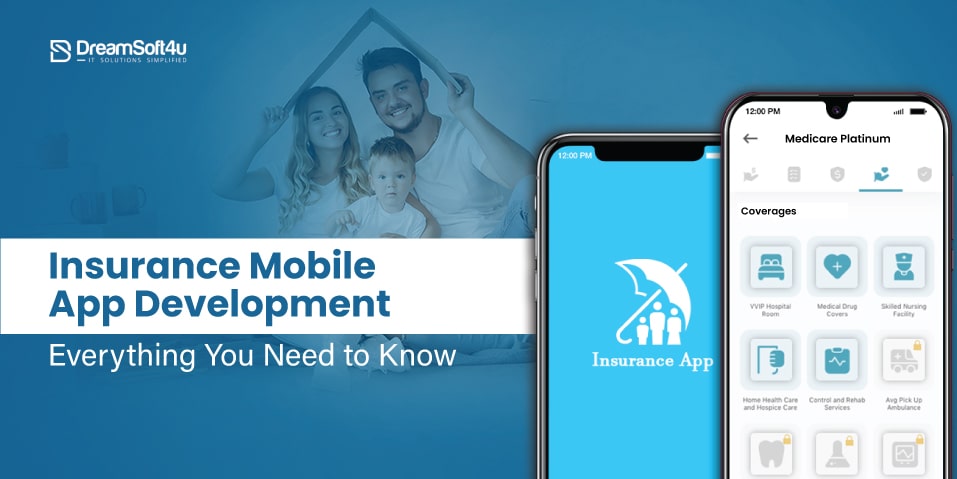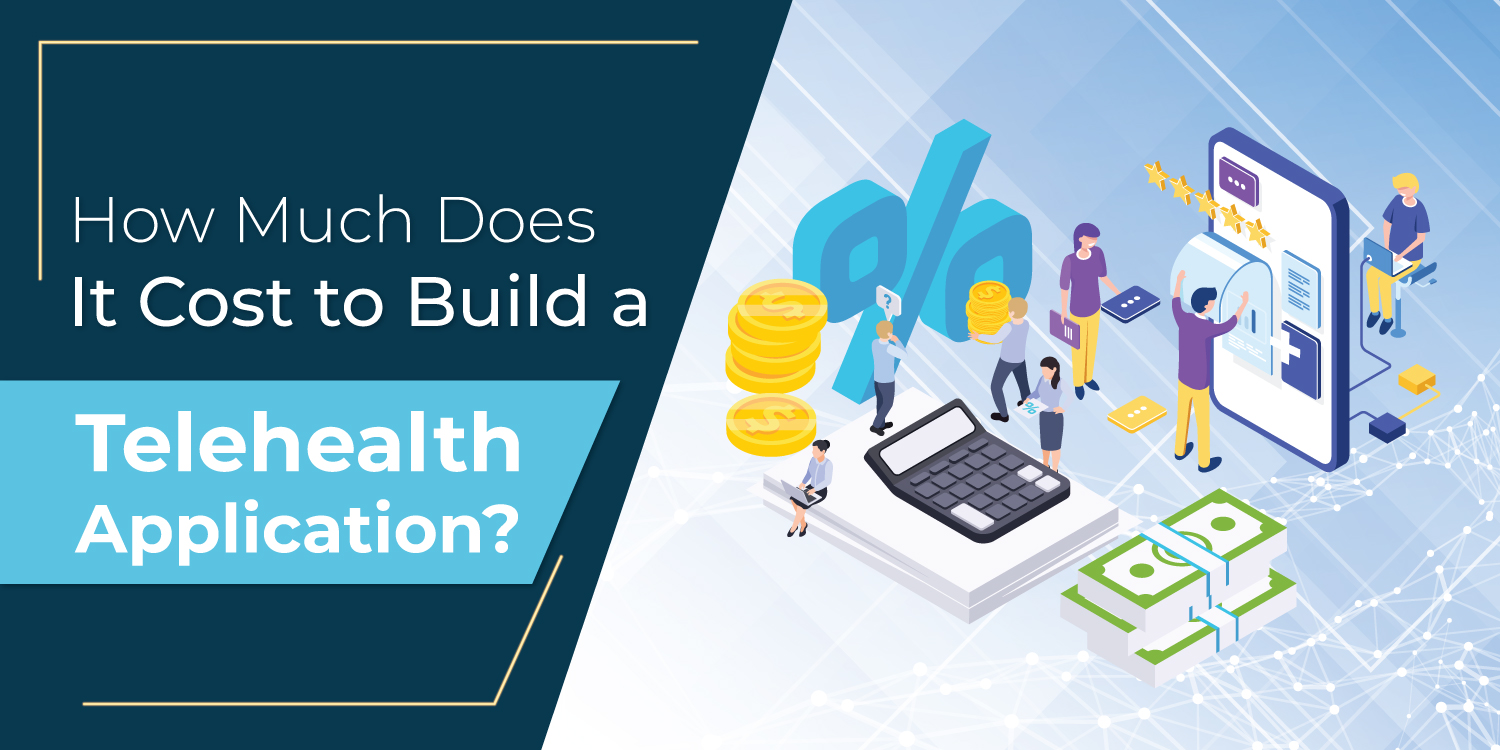Since COVID-19, the healthcare industry has witnessed a massive transformation, especially after the evolution of mobile apps in healthcare. The COVID-19 pandemic affects millions of lives around the globe. Since technologies like telemedicine and telehealth were developed before, patients could get healthcare services in the comfort of their homes. As per the research, the telemedicine industry will grow to $286.22 billion by 2030.
Today, mobile app development services are widely recognized and used by millions of patients to seek medical attention. If you want to know how mobile applications significantly impacted healthcare during the pandemic, we have got you covered. This article is a complete guide on the transformative role of mobile apps in healthcare during pandemic times. Here we go!
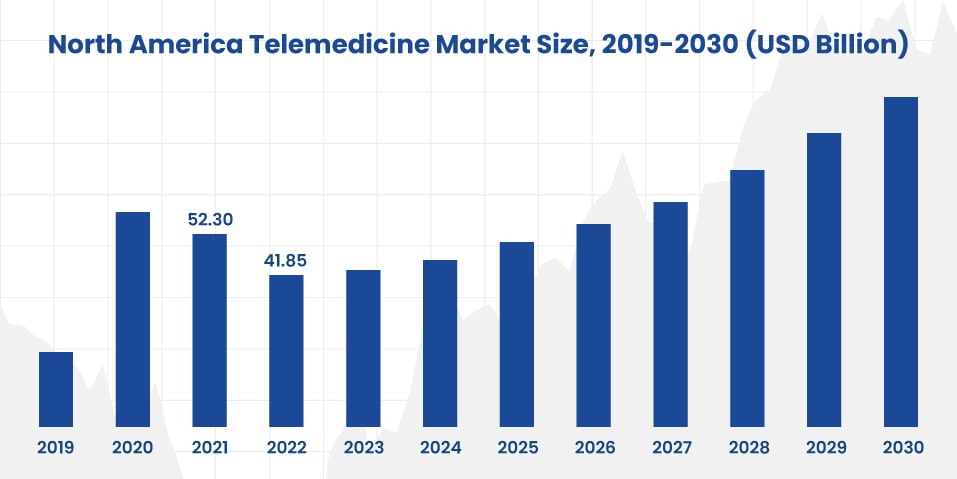
Table of Contents
ToggleIntroduction of Healthcare Mobile Application
A healthcare application is a mobile app or a software program that offers health-related services. Mobile app development in the healthcare industry has spiked in recent years. These applications are designed for people to manage their health and well-being goals. Additionally, all healthcare mobile applications offer services like access to medical records, appointment scheduling, symptom tracking, and health monitoring.
These apps are generally developed by experts from the healthcare app development company and used by doctors, nurses, and other healthcare professionals to track patients’ recovery process and schedule appointments and staffing.
Types of Mobile Applications For Healthcare
Here are several types of mobile applications used in the healthcare industry:
1. Contact Tracing and Monitoring Apps
Contact tracking is one of the most effective and used ways to track and control the rapidly spreading virus. As a result, contact tracing and monitoring applications were designed for people who may have come into contact with infected people and carry the virus within themselves. These applications are location-based and send signals every time a positive case is tracked.
2. Telemedicine and Remote Consultations
During the pandemic, the need for telemedicine applications and remote consultations boomed as everyone was locked inside their homes. Using telemedicine applications, patients can consult health experts, discuss their problems and symptoms, share their health status, and get personalized treatment. All mobile app development companies focused on developing user-friendly and easy-to-use platforms to conduct all these tasks safely.
3. Appointment Scheduling
Today, in the healthcare industry, iOS and Android application development companies have changed how appointments were scheduled earlier. Patients can use these healthcare apps to schedule and confirm appointments with their healthcare experts, doctors, nurses, or other specialists. Additionally, virtual waiting rooms are designed to eliminate the need to sit and wait in physical rooms, increasing the chances of infection. This promises the safety and security of both doctors and patients.
4. Mobile Applications for Self-tracking
Self-assistant and self-tracking applications have become a need in the post-pandemic era. Professional developers from mobile apps for healthcare development companies have designed and developed apps to track symptoms, monitor overall health conditions, and conduct thorough self-assessments. These applications also take the pressure from healthcare clinics and centers as patients evaluate their symptoms themselves and decide if they need to visit a doctor.
5. Medication and Prescription Management
Medication and prescription are two of the most vital aspects of the healthcare industry. Thus, proper management is essential. Using these applications, patients get a schedule of medicines, set reminders, and receive notifications timely. According to research by Statista, the medication and prescription management industry in the healthcare sector.
Overview of COVID-19 and Digitization
The sudden outbreak of COVID-19 in the year 2019 shook the world from the core as it caused mass suffering and chaos. During all the hassle, the healthcare industry experienced a significant transformation as digital transformation is helping it completely focus on its patients. Healthcare mobile app development services offer everything from general fitness to booking an appointment online or medication. Additionally, maintaining patients’ records and data has become easier than ever before. Patients can connect with doctors or specialists through video calls and get a personalized treatment plan, promoting healthy well-being.
Challenges Experienced By the Healthcare Industry
Here are the major challenges experienced by the healthcare industry:
1. Remote Patient Monitoring
Patients recovering from injuries, surgeries, or chronic illnesses require remote monitoring, especially during COVID-19. It was a challenge in front of health experts to track the signs and symptoms of these patients and determine their overall progress.
2. Limited To No Access To Healthcare
During the pandemic, there were restrictions on going out as the fear of contracting the COVID-19 virus always existed. Because of social distancing and traditional healthcare services, patients were not receiving adequate healthcare treatments at the right time. The delayed diagnoses and treatment result in deaths.
3. Contactless Consultation
Another major challenge experienced by the healthcare industry was contactless consultation. Since the world was locked, in-person consultation was not possible. This increased the demand for telemedicine services so that high-quality Healthcare mobile app development services can be offered remotely.
4. Overwhelmed Healthcare and Medical Systems
The sudden outbreak covid-19 and the coronavirus overwhelmed all healthcare clinics and medical systems around the globe. Since the patient flow was highly high, managing appointments, scheduling them, and efficiently allocating resources became huge tasks. This resulted in delayed patient care, long waiting hours, and more stress.
5. Promoting Remote Care and Social Distancing
During COVID-19, social distancing was widely announced, which restricted in-person hospital visits, making it nearly impossible for all patients to get high-quality medical services. According to a report, the use of telemedicine applications increased during COVID-19. Most healthcare experts and patients have shifted to telemedicine software to get treatment plans.
How Are Medical Mobile Healthcare Apps Transforming the Healthcare Industry?
1. Monitoring Patient’s Health Remotely
In the healthcare industry, fitness bands are used to connect to your smartphones via a health application to track your health remotely. Additionally, wearable technology and devices are bringing change to the healthcare industry. These devices also measure the body’s blood pressure, heart rate, total number of steps, and blood sugar levels.
2. Immediate Access To Healthcare
Bygone are the days when you had to make appointments 2-3 days before visiting the healthcare clinic and sit in long queues. You can get immediate healthcare facilities through medical mobile applications where patients and doctors can book appointments, discuss problems through video calls, and get a personalized treatment plan.
3. Easy Payments
Another key reason medical mobile applications are transforming the healthcare industry is through easy payments. Traditionally, people used to wait several hours in a queue to make payments. However, today, there are varied payment options, ensuring payments are made easily within a few clicks.
4. Increased Accuracy In Reports
Chances of errors in making healthcare reports were common, which caused a lot of stress. Since these reports on these applications are made using machine learning technology, there are fewer chances of errors.
5. Choose Your Doctor
Mobile apps for healthcare industry, patients can choose their doctor based on the information provided. Information such as cost, ratings, expertise, and more are listed, which gives a detailed overview of the doctor and their overall experience, allowing you to make the right decision.
Reasons To Choose Mobile Apps In Healthcare Industry
Here are the top reasons why mobile applications are preferred in the healthcare industry:
1. Better Clarity
When mobile applications just entered the healthcare world, it was tricky for people to understand and comprehend. Medical problems were not discussed openly for a long time, whereas one-on-one appointments were considered. However, with the advancements of mobile apps and their increased usage, people have understood their functioning and are using it to get top-notch medical solutions.
2. Increased Connectivity
According to a report by Statista, the total number of telehealth visits in the US has increased from 36.9 million in 2019 to 202.3 million in 2020, displaying a massive growth and acceptance of mobile apps in the healthcare industry. These mobile applications, such as telemedicine and others, successfully connect you to your healthcare expert, ensuring you can discuss problems and get solutions faster.
3. Tracking Symptoms and Illness
Constantly tracking symptoms of illnesses becomes a hectic and lengthy process for patients. Maintaining an endless connection loop between a patient and their healthcare expert is impossible. Collecting information about the patient’s health and tracking symptoms and illnesses has become easier through these mobile apps in healthcare. These applications also offer people all vital information or awareness through chatbots, videos, and more.
4. Minimum Waiting Time
The most frustrating and brainstorming period in the healthcare industry was the waiting time. With the advancements in technology and the introduction of telemedicine applications, you can easily book your appointment and sit for a consultation from the comfort of your home. This minimizes the need to travel to a hospital, stand in a queue for hours, and wait.
Contact Our Experts to Build Your Customized Healthcare App
Get a Free Consultation Today
Why Is There A Need For Mobile App Development In The Healthcare Industry?
Today, the healthcare industry is experiencing several challenges that can be tackled through mobile app development to a great extent. These applications provide easy access to quality healthcare services, promote remote patient monitoring, streamline resource management, and promote contactless consultations. As the healthcare industry is openly embracing digital transformation, the demand for mobile app development will grow exponentially.
Here are the top reasons why there is a need for mobile app development in the healthcare industry:
1. Telemedicine Services
One of the top reasons how mobile apps in healthcare are revolutionizing the healthcare industry is through telemedicine services. Telemedicine services are contactless consultations where patients get healthcare solutions remotely. You can book an appointment online and get a consultation using a telemedicine application.
2. Enhanced Patient Care
All mobile applications in the healthcare industry are equipped with remote patient care, which promises enhanced care. Patients can discuss their symptoms, medications, medical history, and other details with healthcare professionals. This promises early detection of any underlying disease and management.
3. Efficient Use Of Resources
Mobile applications help all healthcare organizations to carefully use their resources. These applications allow health centers to allocate all resources effectively, manage bed availability, track real-time information about COVID-19, and more. This contributes to improved patient care and enhanced coordination.
4. Easy Access To Healthcare Services
Mobile apps in healthcare have made healthcare services highly accessible for patients. Since patients can consult health experts online from the comfort of their homes, healthcare services have become highly accessible.
Frequently Asked Questions
1. List the most essential features of a telemedicine application
Some of the most important features of a telemedicine application include:
- The doctor’s profile is a doctors-dedicated page.
- Electronic medical records and patient history
- appointment management to manage appointments easily
- remote patient monitoring or RPM module to monitor the patient
- E-prescription for doctors and patients
- Video conferencing so that doctor and patient can connect and talk
- Internal data exchange
- The profile page on the telemedicine application features all necessary information like the patient’s name, gender, address, age, phone number, and picture.
- Dashboard on your Telemedicine software solutions, which highlights the total number of visits.
2. What are the benefits of mobile applications in the healthcare sector
Some major benefits of mobile apps in healthcare sector:
- Easy access to specialists
- Cost-effective option
- Medical access for the rural population
- Saves time and energy
- Emergency care
- Physical therapy at home
3. Mention the step-by-step procedure to build an excellent telemedicine application for the healthcare sector
Here is the step-by-step process to build a telemedicine application for the healthcare sector:
- The first step is to check your app idea
- Get in touch with developers for a quotation
- Build a project opportunity for the MVP
- Kickstart the development phase
- Application demonstration approval
- Submit your application to the app store
4. List different types of mobile applications for healthcare
Some common types of mobile apps in healthcare are:
Medical apps for patients
- Fitness and wellness apps
- Self-diagnosis solutions
- Reminder assistant apps
- Addiction Recovery App
- Mental health apps
- Women health tracking apps
- Diet tracking apps
Apps for medical institutions
- Scheduling and appointment solutions
- Billing
- Clinical assistance app with EHR and EMR access
- Inventory management
Apps for healthcare professionals
- Remote monitoring
- Appointment management solutions
- Telemedicine
5. List some factors that determine the cost of building a telemedicine app
Major factors that largely influence the cost of telemedicine app development include design, application features, mobile development, web development, maintenance, project management and types of apps.
Wrapping Up!
The evolution of mobile apps in the healthcare industry has spiked recently, especially after the COVID-19 pandemic. These applications feature a detailed and robust framework for healthcare service providers through easy access to health records, online diagnosing, improved patient awareness, and interaction between patients and doctors.
Looking at the changing trend, it can be said these mobile apps in healthcare are here to stay! If you plan to build your mobile application or software, DreamSoft4u is a popular custom app development services provider offering end-to-end solutions!








